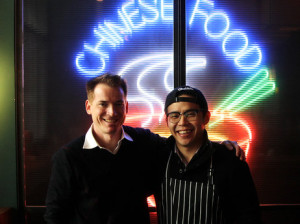 Interesting piece in the New Republic about the use of periods in text messages and online chats. It’s not something I’ve thought about or even noticed. In text messages I rarely see any punctuation. The period in short-form electronic communication plays a quite different role than it does normally in writing. According to the article, “people use the period not simply to conclude a sentence, but to announce ‘I am not happy about the sentence I just concluded.’”
Interesting piece in the New Republic about the use of periods in text messages and online chats. It’s not something I’ve thought about or even noticed. In text messages I rarely see any punctuation. The period in short-form electronic communication plays a quite different role than it does normally in writing. According to the article, “people use the period not simply to conclude a sentence, but to announce ‘I am not happy about the sentence I just concluded.’”
According to Ben Crair, the author of the article,
This is an unlikely heel turn in linguistics. In most written language, the period is a neutral way to mark a pause or complete a thought; but digital communications are turning it into something more aggressive. “Not long ago, my 17-year-old son noted that many of my texts to him seemed excessively assertive or even harsh, because I routinely used a period at the end,” Mark Liberman, a professor of linguistics at the University of Pennsylvania, told me by email.
It’s not just the period that’s being used differently today. A recent piece in Slate examined “Why everyone and your mother started using ellipses … everywhere”. The article speculates that ellipses are being used to simulate spoken language, namely in place of pause words like um and uh. He cites writer Clay Schirky on that idea: “People are communicating like they are talking, but encoding that talk in writing.” This is the same trend seen in the use of the period, namely an attempt to put into written texts the features of spoken language, to make up for the lack of paralanguage (tones, intonation, expressive gestures, non-word utterances). A recent thread on the Language Log explores the “new semiotics of punctuation.”
There have been of course for some time conventions in online writing to compensate for the this absence such as emoticons (sad face), netspeak (lol) or typing in all caps (I’M SHOUTING). These efforts go some ways towards adding more expressivity to written texts, but miss the ability to identify one of the modes of speaking that isn’t conveyed easily by these traditional techniques: sarcasm. But never fear, a company called Sarcasm, Inc., is marketing a “Sarcasm punctuation mark” called SacrMark. But maybe that’s not really needed, as John Gruber commented: “What a great idea. I’m sure it’ll be a huge hit.” Sometimes all you need are words.
